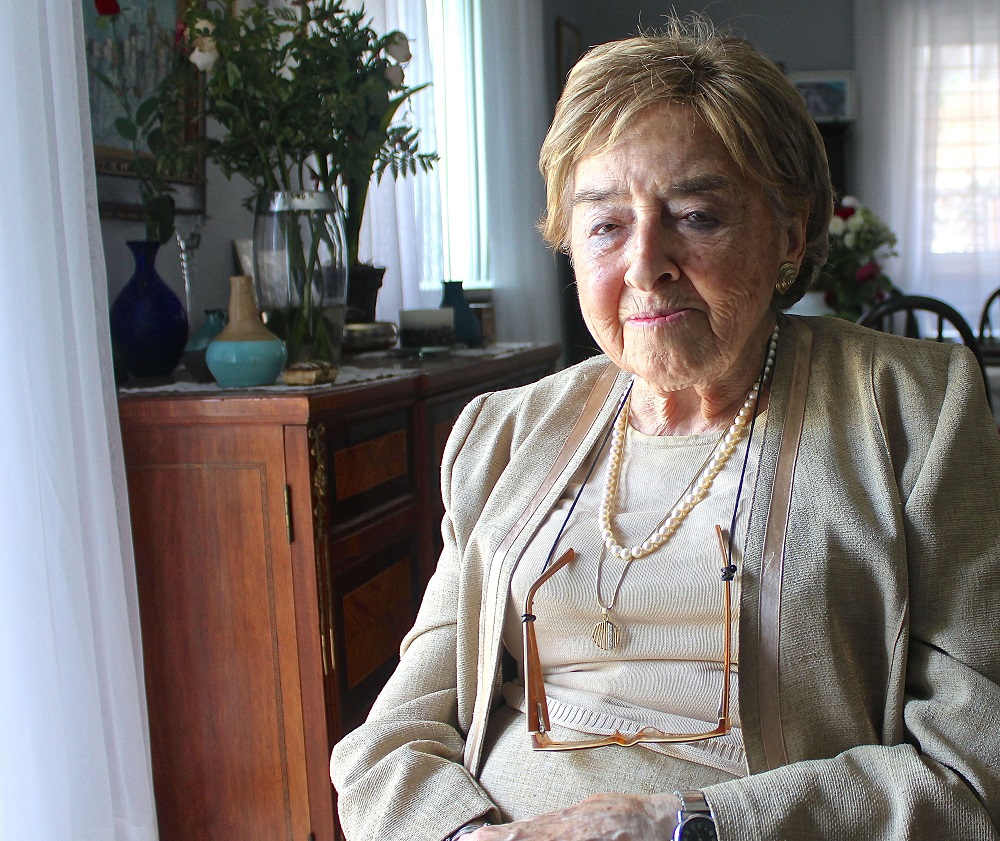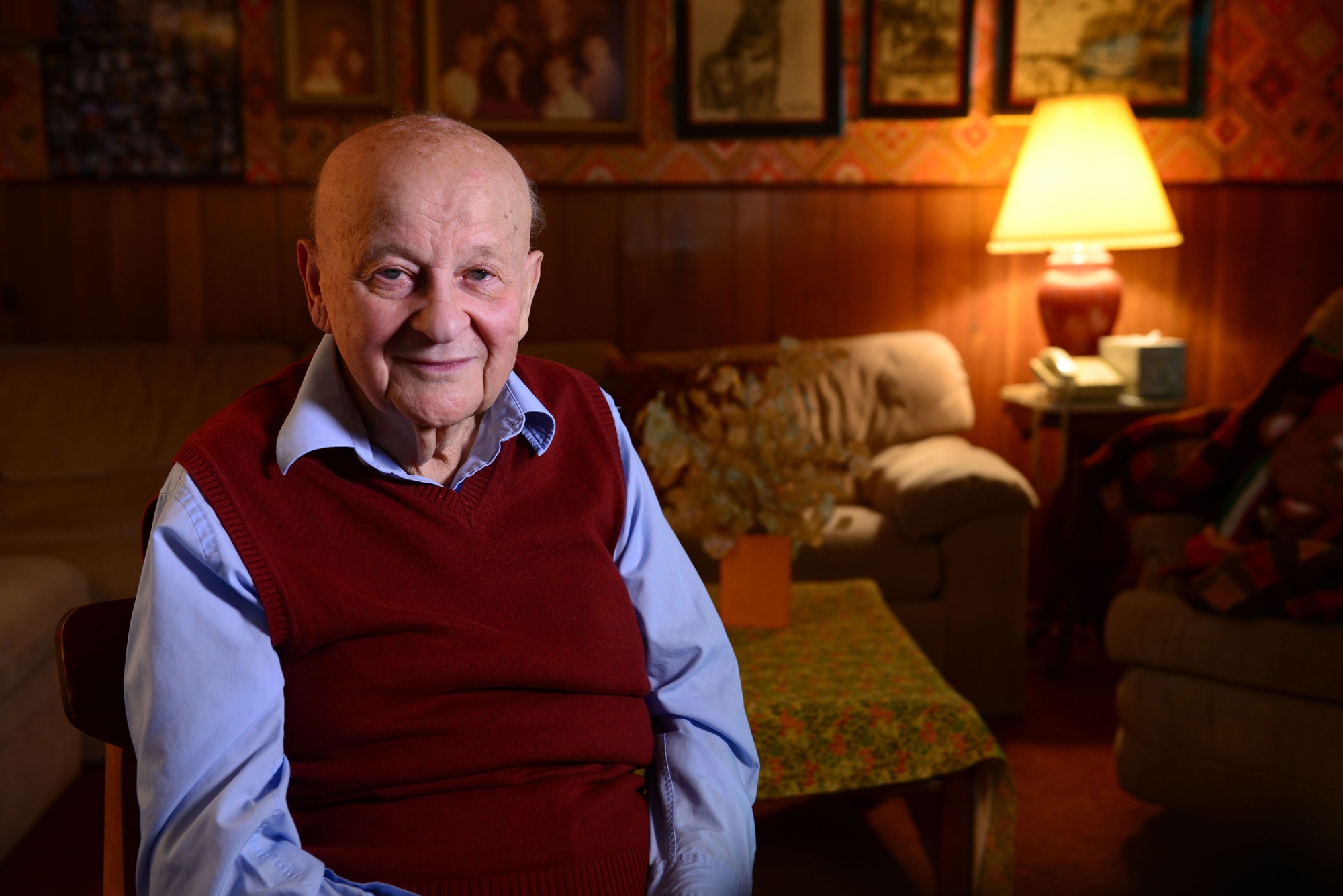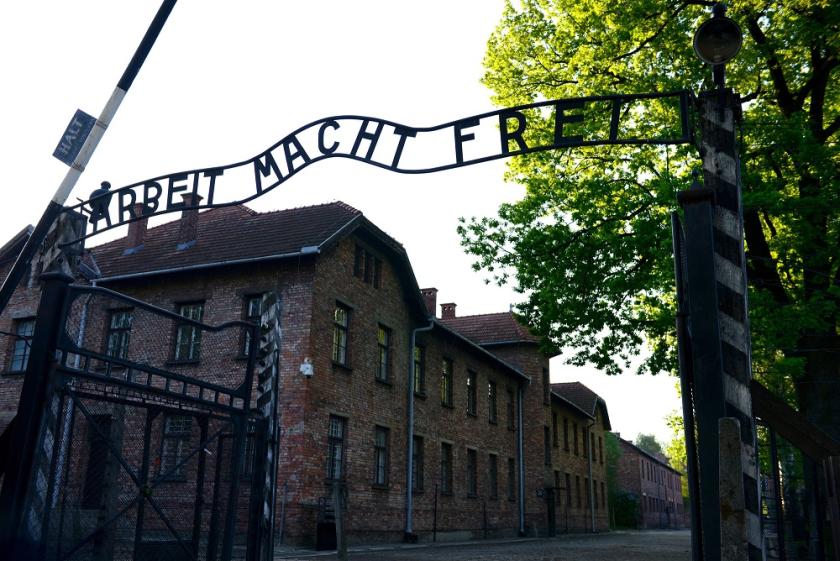There’s been a pronounced sense of finality at this year’s 70th anniversary commemoration of the 1945 liberation of Auschwitz. No closure, of course, but an awareness that the ranks of survivors are diminishing, and that soon their first-person testimonials will disappear into a past.
So it was more than fitting that Touched by Auschwitz should see historian Laurence Rees (whose past films like The Nazis: A Warning from History and Auschwitz: The Nazis and the Final Solution are as authoritative as they come) following the lives of six survivors through to the present day, examining not least how their experiences have been passed onto their loved ones. No less encouraging that the BBC should give him the resources to do so at 90 minutes of serious television which never seemed to hurry his subjects in their musings and interactions with their descendants.
The arrival of each new grandchild in the family was celebrated as another example of 'Max’s victory over Hitler'
Such family bonds had rarely been easy: no wonder that the Israeli institute AMCHA dedicated to helping the camp survivors is equally concerned with that second generation. Halina Birenbaum, who opened Rees’ film, had not only felt unspeakable grief – “no sky, no more earth” – after her mother’s murder in the camps, she’d also lost any sense of how to be a parent. It certainly didn’t help that after her arrival in Tel Aviv in 1947 she was met with what she described as rejection and disrespect by those who had come to set up the Jewish state decades earlier. Their bitter accusations included – why didn’t you come early and help to build, and even, why didn’t you resist what was being done to you?
 No wonder that Halina’s relationship with son Yakov was complicated: she hadn’t hit him, though she did yell, she remembered, interspersing her cries with the full history of what had happened to her. Parental bonds were almost reversed, as children came to become the "caretakers" of their parents. Giselle Cycowicz (pictured, right) was an inspiration in such a context, a psychologist who worked with fellow survivors, and had spared her children the direct details of her experience. Her wisdom sounded simple – “not to explode at little things: anger will drive you out of this world” – and backed by a faith that had endured through everything.
No wonder that Halina’s relationship with son Yakov was complicated: she hadn’t hit him, though she did yell, she remembered, interspersing her cries with the full history of what had happened to her. Parental bonds were almost reversed, as children came to become the "caretakers" of their parents. Giselle Cycowicz (pictured, right) was an inspiration in such a context, a psychologist who worked with fellow survivors, and had spared her children the direct details of her experience. Her wisdom sounded simple – “not to explode at little things: anger will drive you out of this world” – and backed by a faith that had endured through everything.
“What do you say?” was how Max Epstein (pictured, below left) confronted the question of how to relate his experiences to his children, and had even found an unusual humour when he was raising them: asked about the tattoo on his arm, he joked that it meant that if he lost it, people would know whom it should be returned to. He had consciously “erased” experience, except for one act of unexpected kindness from a German soldier – and kindness had become the foundation of his belief system. He had come through Israel, where fighting invading Arab armies had provided him with the “best catharsis” (which itself says a great deal), before settling in Chicago. The arrival of each new grandchild in the family was celebrated as another example of “Max’s victory over Hitler”.
These were remembrances told in relative tranquillity – the main emotion expressed being amazement that each was still alive – except for when, like with Max, we sensed so much more behind his silences. The same was there in the eyes of the children caught in old photographs – darting eyes that seemed to convey a full range of emotions, from youthful engagement with the world, to startlement, through to sheer horror.
 It was the details of each story that hit home. Hermann Hollenreiner, one of Rees’ non-Jewish subjects, was a Sinti, or gypsy, and though eventually reunited with his surviving family after the war (and lovingly looked after by a French family in the immediate period after his release), his grown-up daughter could still feel his inherited anxieties, and the same nightmare recurred. For French-born Freda Wineman, who had come to London after her release, those bad dreams had finally gone away only when she started visiting schools and recounting her experiences. Tell the story, but not in bitterness, Freda urged, her warnings all too actual in the present day.
It was the details of each story that hit home. Hermann Hollenreiner, one of Rees’ non-Jewish subjects, was a Sinti, or gypsy, and though eventually reunited with his surviving family after the war (and lovingly looked after by a French family in the immediate period after his release), his grown-up daughter could still feel his inherited anxieties, and the same nightmare recurred. For French-born Freda Wineman, who had come to London after her release, those bad dreams had finally gone away only when she started visiting schools and recounting her experiences. Tell the story, but not in bitterness, Freda urged, her warnings all too actual in the present day.
As a political prisoner Polish inmate Tadeusz Smreczynski may have spent the shortest time in Auschwitz, though he narrowly avoided execution before being transferred away. But in age he’d ended up as close to it as you could get, living an unsettling ten-minute drive away down the road later named “Victims of Auschwitz Street”. His camp experience had taught him that “life could only regain sense if you try to do good to other people”, and he’d trained as a doctor, though refusal to join the Communist Party had hindered his career.
He’d his tattoo cut away, though admitted that “those things can’t be removed by any scalpel”. It brought home the variety of strategies for survival that had been chosen by those with whom Rees spoke. Their sheer resilience spoke for itself: these were no longer “victims”, like that street Polish name, but, akin to Max’s new grandchild, examples of "victory over Hitler". Who were ready warn us about today, as well as invoke the instruction, “Live up to it!”. Max described himself as a 150% winner, because he’d created generations that would follow him: there was triumph in his voice. None of them, or us, needed Samuel West’s gentle narration to remind us of the other 1.1 million people who were “touched” by Auschwitz, and never left it.















Add comment